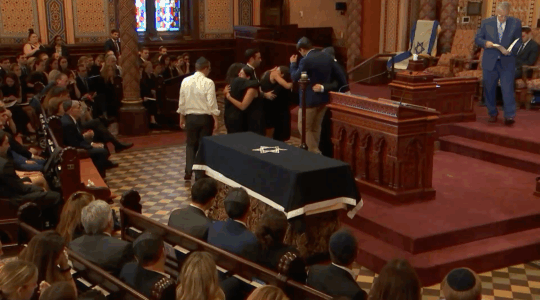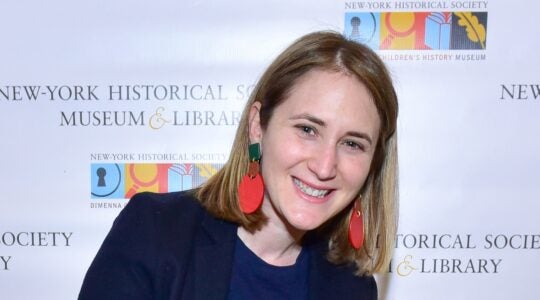The heir of a French Holocaust victim went to a Swiss bank seeking the money from his relative’s account. Although the bank had a handwritten note stating that the account had been drained dry by bank fees in 1972, the bank turned the heir away by saying no such account then existed.
The son of a Polish man murdered in Auschwitz in 1942 contacted the Swiss bank in which his father had deposited money before the war. Several times he asked about his father’s account in the bank’s Zurich branch, and each time he was told there was no such account. The bank never revealed that the account had actually been in its Basel branch and was looted by the Nazis in 1938.
A Dutch Jew who escaped Nazi persecution by fleeing to Chile directed that funds be released from his Swiss bank account to pay for food packages for his wife, who was interned in a Nazi concentration camp. The bank refused, saying all accounts of citizens of countries under Nazi occupation were frozen. But some time later, the bank transferred the man’s money to Berlin at the direction of the Nazis.
Those are just some of the ways Swiss bankers acted in collusion with the Nazis during the Holocaust and later prevented the heirs of Nazi victims from obtaining the money in their relatives’ Swiss bank accounts. They were detailed in a report this week by Paul Volcker, the former chairman of the U.S. Federal Reserve, who headed a three-year, $500 million forensic search of Swiss bank accounts opened between 1933 and 1945.
The search was agreed upon in 1996 to answer charges by Jewish groups that Swiss banks had hoarded perhaps billions of dollars deposited by Jews before the war who were later murdered in the Holocaust. The Swiss banks claimed in 1995 to have found only 775 Holocaust-era accounts totaling $32 million.
Survivors and their heirs sued the banks when newly declassified American documents were released in 1996 that revealed Swiss collusion with the Nazi war effort — despite their official stance of neutrality.
The Volcker report said the search by 650 auditors of 4.1 million accounts from 254 Swiss banks located 53,886 heretofore undisclosed accounts that were believed opened by Jewish Nazi victims. It said that 33,692 of those accounts had been closed — but not by the account holders — and that the remaining accounts were still open but dormant and contained $300 million in today’s valuation.
Elan Steinberg, executive director of the World Jewish Congress, said the Volcker report found that of the closed accounts, 3,000 had been bled dry through bank fees or were looted by the Nazis. It said it was not known who closed the remaining accounts. And because the bank records were largely incomplete, the auditors were able to determine from only 11 percent of the accounts how much money was there before they were closed. That figure added up to $400 million. Based upon that number, Steinberg said it is believed that the closed accounts may have held as much as $1.2 billion.
Volcker said he would recommend that the findings not upset the $1.25 billion settlement of the class-action lawsuits that was reached with two major Swiss banks in August 1998. Brooklyn Federal Judge Edward Korman is now conducting hearings to determine if the settlement is fair. The settlement came after threats by the comptrollers in several cities and states — led by New York City Comptroller Alan Hevesi — to boycott Swiss banks unless the suits were resolved.Both Jewish groups and Swiss bankers said they were gratified by the auditors’ findings.
“The report has confirmed the worst fears of Holocaust survivors and validated their charges of a half century,” said Steinberg.Georg Krayer, chairman of the Swiss Bankers Association, said the auditors had found that the “conduct of the banks during the period in question was correct. … The banks did not discriminate against any customers on the grounds of origin and did not illegally appropriate any assets of Holocaust victims. They have allowed Holocaust victims or their descendents the same access to accounts which are rightfully theirs as they have done for all other customers. … Consequently, the dramatic and sweeping accusations leveled against Swiss banks four years ago have proved to be unfounded.”
Although acknowledging that the report did reveal cases of misconduct, Krayer said some were transgressions by individual bank employees who were punished when it was discovered. And he said the “banks regret” the other criticisms in the report.
The national director of the Anti-Defamation League, Abraham Foxman, welcomed the Volcker report but said that for the “Swiss banks to now engage in an orgy of self-praise is not warranted. You have to remember that they had to be dragged into conducting this investigation after saying for years that they had nothing. One would have hoped for humility, contrition and remorse rather than self vindication.”
And he said the banks’ insistence that the names of banks criticized in the report not be revealed means “this whole thing is still incomplete.”
The report found that banks broke into the safe deposit boxes of presumably murdered Jews and sold the valuables inside to pay for the boxes’ rental fees.In another case, it found that, contrary to the wishes of a Russian Jew who wanted his money invested in less-risky, fixed securities, the bank invested in more volatile equity securities. As a result, by 1962 the account had swelled to more than 14 times its 1930 value. The bank then changed the account records to make it appear that there had been no profits and it pocketed the earnings. The bank stonewalled the depositor’s heirs who inquired about the account. Only after the bank ombudsman requested a search did the bank inform the heirs of the account’s existence and settle with them.
Rabbi Marvin Hier, founder of the Simon Wiesenthal Center, said the auditors’ findings proved that the $1.25 billion settlement was fair and not exorbitant, as many Swiss citizens had charged.
“This is not the story of a charitable Switzerland that out of its own goodwill is giving away funds to the survivors of the Holocaust when no money was due,” he said. “This is the story of money being returned to the rightful owners. This is not an act of charity, it is an act of justice.”
In another development, the American Jewish Committee this week released the names of 255 German companies that allegedly used forced and slave labor during the Nazi era and appealed to them to contribute to a fund to compensate those people. So far, only about 24 companies and the German government have agreed to contribute about $4 billion to the fund. Attorneys for the laborers are asking twice that much and President Bill Clinton has suggested $5 billion, according to a source close to the negotiations.
The New York Jewish Week brings you the stories behind the headlines, keeping you connected to Jewish life in New York. Help sustain the reporting you trust by donating today.




